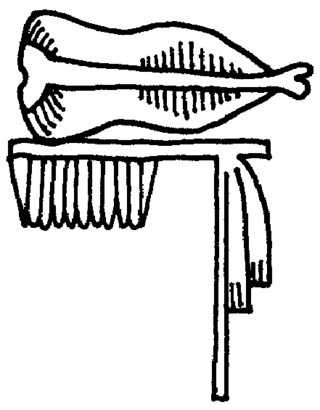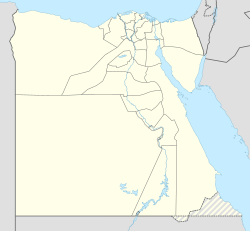Top Qs
Timeline
Chat
Perspective
Letopolis
Human settlement From Wikipedia, the free encyclopedia
Remove ads
Letopolis (Greek: Λητοῦς Πόλις) was an ancient Egyptian city, the capital of the second nome of Lower Egypt. Its Egyptian name was Khem 𓋊𓐍𓐝𓂜𓊖𓉐 (ḫm),[2] and the modern site of its remains is known as Ausim (Arabic: اوسيم, from Coptic: ⲟⲩϣⲏⲙ, ⲃⲟⲩϣⲏⲙ).[3][4][5] The city was a center of worship of the deity Khenty-irty or Khenti-kheti, a form of the god Horus. The site and its deity are mentioned in texts from as far back as the Old Kingdom (c. 2686–2181 BC), and a temple to the god probably stood there very early in Egyptian history. The only known monuments at the site, however, date to the reigns of pharaohs from the Late Period (664–332 BC): Necho II, Psamtik II, Hakor, and Nectanebo I.[6][4]
Remove ads


Remove ads
In popular culture
Letopolis is depicted in the 2017 video game Assassin's Creed Origins,[7] set during the Ptolemaic Era of Egypt,[8] as having been "rediscovered" and used as a base by one of the games antagonists.
See also
References
Wikiwand - on
Seamless Wikipedia browsing. On steroids.
Remove ads

